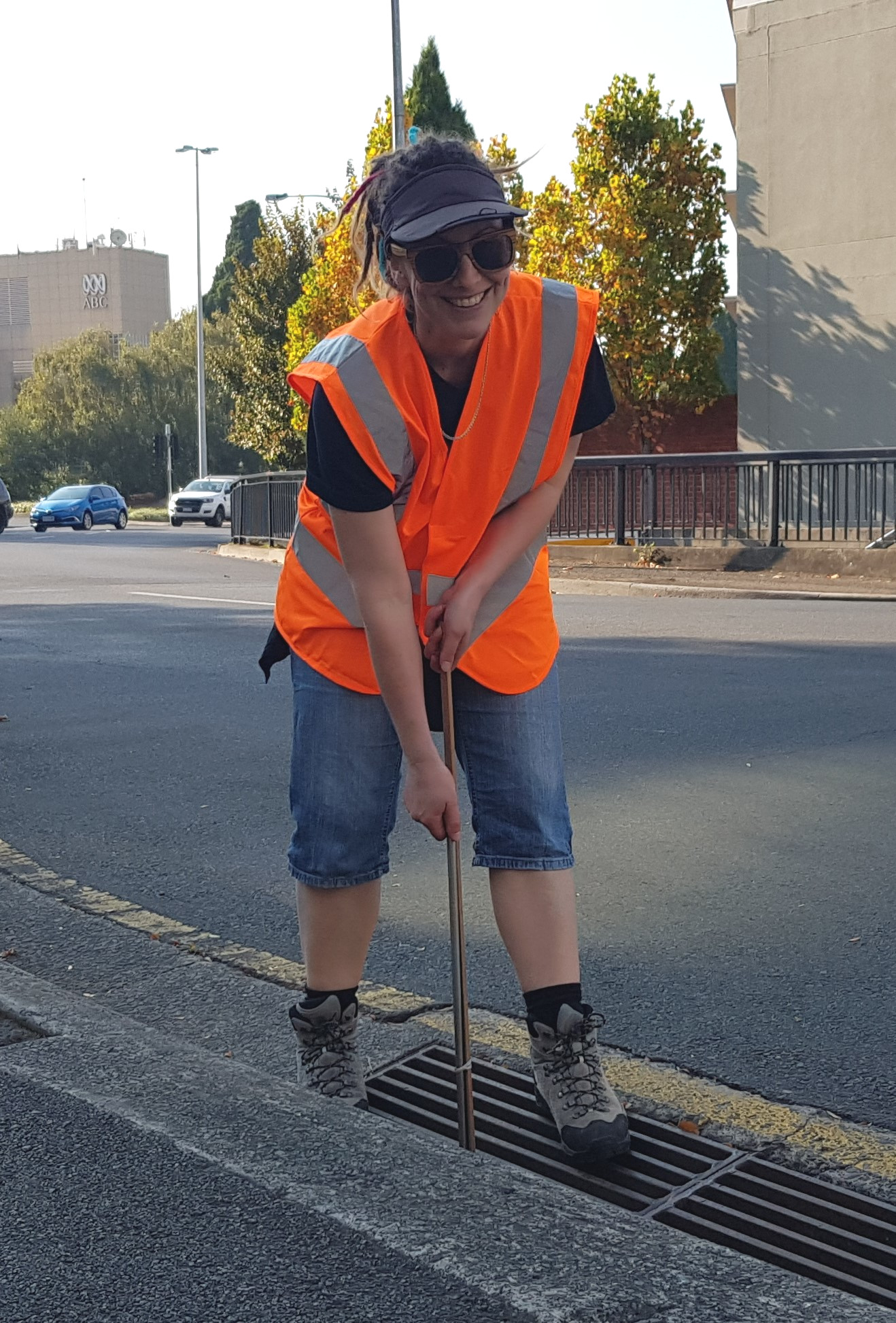Stormwater litter is a big problem for Australia’s oceans and marine life. But just how big?
“It’s huge, and not well known,” says CSIRO researcher Justine Barrett.
“We estimate around 170,000 tons of litter to our surrounding oceans each year – that is equivalent to 47 rubbish trucks backing up into the ocean every single day.”
 Those truckloads can include plastic, heavy metals, sediment, excess nutrients (for example, from fertiliser run off), PFAS ‘forever chemicals’, pathogens and hydrocarbons like oil from cars and restaurant kitchens.
Those truckloads can include plastic, heavy metals, sediment, excess nutrients (for example, from fertiliser run off), PFAS ‘forever chemicals’, pathogens and hydrocarbons like oil from cars and restaurant kitchens.
“Basically, any pollutant that you can find on land, can end up in stormwater and ultimately in our oceans,” Justine says.
“Each of these pollutants can cause problems for marine ecosystems. For example, excess nutrients have been identified as a contributor to the major algal bloom in South Australia.”
It’s a problem Justine is working on as the first CSIRO Industry PhD program student at the University of Tasmania. The iPhD program brings together an industry partner (in this case stormwater pollution specialists Ocean Protect), a university and CSIRO, to co-develop a four-year impact-driven research project.
Justine is taking it on after eight years working on marine debris at CSIRO. Her project has already won the TAS Water Awards Student Prize and an industry award in NSW.
The problem of stormwater litter has a solution to reduce rubbish ending up in our oceans - devices called gross pollutant traps that effectively trap the litter.
Justine estimates that two thirds of all litter reaching our waterways and oceans could be stopped if the devices are used properly.
“We have a major issue in Australia where these devices are installed but not emptied,” she says.
“They are installed, become full of litter and are then forgotten about. Gross pollutant traps are usually in stormwater pipe systems underground and become an ‘out-of-sight, out-of-mind’ problem.”
In fact, only five per cent of gross pollutant traps in Australia are fully operational, Justine’s research has found.
Why stormwater gross pollutant traps aren’t being emptied is the focus of Justine’s research in the University’s School of Humanities and Social Sciences. Lack of resources, few consequences and no aligned best practice are all having an impact, she says.
“Ultimately, however, the biggest problem is a lack of awareness.
“We need to increase knowledge and understanding of this major pollution pathway.
“Increasing awareness of stormwater pollution could help inform government policy, improve resources, and establish best practice for managing this technology and preventing litter in the environment.
“The squeaky wheel gets the oil, and unfortunately for stormwater pollution – it hasn’t been very squeaky. I am trying to make it squeak.”
Congratulations on your awards, Justine.
Stormwater litter is a big problem for Australia’s oceans and marine life. But just how big?
“It’s huge, and not well known,” says CSIRO researcher Justine Barrett.
“We estimate around 170,000 tons of litter to our surrounding oceans each year – that is equivalent to 47 rubbish trucks backing up into the ocean every single day.”
Those truckloads can include plastic, heavy metals, sediment, excess nutrients (for example, from fertiliser run off), PFAS ‘forever chemicals’, pathogens and hydrocarbons like oil from cars and restaurant kitchens.
“Basically, any pollutant that you can find on land, can end up in stormwater and ultimately in our oceans,” Justine says.
“Each of these pollutants can cause problems for marine ecosystems. For example, excess nutrients have been identified as a contributor to the major algal bloom in South Australia.”
It’s a problem Justine is working on as the first CSIRO Industry PhD program student at the University of Tasmania. The iPhD program brings together an industry partner (in this case stormwater pollution specialists Ocean Protect), a university and CSIRO, to co-develop a four-year impact-driven research project.
Justine is taking it on after eight years working on marine debris at CSIRO. Her project has already won the TAS Water Awards Student Prize and an industry award in NSW.
The problem of stormwater litter has a solution to reduce rubbish ending up in our oceans - devices called gross pollutant traps that effectively trap the litter.
Justine estimates that two thirds of all litter reaching our waterways and oceans could be stopped if the devices are used properly.
“We have a major issue in Australia where these devices are installed but not emptied,” she says.
“They are installed, become full of litter and are then forgotten about. Gross pollutant traps are usually in stormwater pipe systems underground and become an ‘out-of-sight, out-of-mind’ problem.”
In fact, only five per cent of gross pollutant traps in Australia are fully operational, Justine’s research has found.
Why stormwater gross pollutant traps aren’t being emptied is the focus of Justine’s research in the University’s School of Humanities and Social Sciences. Lack of resources, few consequences and no aligned best practice are all having an impact, she says.
“Ultimately, however, the biggest problem is a lack of awareness.
“We need to increase knowledge and understanding of this major pollution pathway.
“Increasing awareness of stormwater pollution could help inform government policy, improve resources, and establish best practice for managing this technology and preventing litter in the environment.
“The squeaky wheel gets the oil, and unfortunately for stormwater pollution – it hasn’t been very squeaky. I am trying to make it squeak.”
Congratulations on your awards, Justine.
